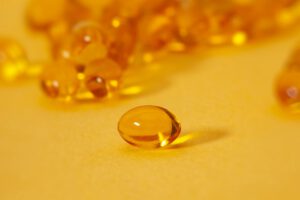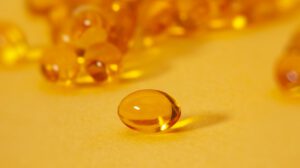Several lifestyle factors can influence testosterone levels, including:
- Exercise: Regular physical activity, particularly strength training, can help increase testosterone levels.
- Diet: A diet high in protein, healthy fats, and complex carbohydrates can support testosterone production.
- Sleep: Getting enough sleep is vital for maintaining testosterone levels. Aim for 7-9 hours of sleep per night.
- Stress management: Chronic stress can lead to decreased testosterone levels. Practicing stress management techniques, such as deep breathing, meditation, and exercise, can help reduce stress and support testosterone production.
- Weight management: Being overweight or obese can lead to decreased testosterone levels. Losing weight through diet and exercise can help improve testosterone levels.
It’s important to note that testosterone levels naturally decline with age, and there is no surefire way to increase them to a specific target level. If you are concerned about your testosterone levels, you should speak with a healthcare provider for personalized advice and guidance. They can help you determine the best action based on your specific needs and health profile.
Best Exercises to Increase Testosterone
Exercise, particularly strength training, can help increase testosterone levels in the body. Some examples of strength training exercises that may be particularly effective for increasing testosterone include:
- Squats: Squats are a compound exercise that targets the muscles in the legs and buttocks. You can try squats with a barbell, dumbbell, or body weight.
- Deadlifts: Deadlifts are a compound exercise that targets the muscles in the back, legs, and arms. You can try deadlifts with a barbell, dumbbells, or kettlebells.
- Bench press: The bench press is a compound exercise that targets the muscles in the chest, triceps, and shoulders. You can do it with a barbell or dumbbell.
- Pull-ups: Pull-ups are a compound exercise that targets the muscles in the back, biceps, and forearms. You can do it with a bar or other equipment.
It’s important to note that the effectiveness of these exercises for increasing testosterone will depend on the individual and their specific needs. Therefore, it’s a good idea to speak with a healthcare provider or a certified fitness professional for personalized recommendations on an exercise plan that is right for you. They can help you determine the best exercises for your goals and help you develop a safe and effective workout plan.
Testosterone Boosting Diet, best foods to boost your testosterone
There is no specific diet that has been proven to increase testosterone levels. However, certain dietary habits may support healthy testosterone production. Some dietary recommendations for maintaining testosterone levels include:
- Consume enough protein: Adequate protein intake is essential for maintaining testosterone levels. Aim to include a source of protein in each meal and snack. Good protein sources include meat, poultry, fish, eggs, dairy products, beans, and legumes.
- Eat healthy fats: Healthy fats, such as monounsaturated and polyunsaturated fats, can support testosterone production. Good sources of healthy fats include olive oil, avocado, nuts, and seeds.
- Choose complex carbohydrates: Complex carbohydrates, such as whole grains, fruits, and vegetables, provide sustained energy and support healthy hormone production.
- Limit added sugars: Consuming too much added sugar can lead to weight gain and decreased testosterone levels. It’s a good idea to limit your intake of sugary foods and drinks.
- Stay hydrated: Adequate hydration is essential for overall health, including testosterone production. Aim to drink at least 8-8 ounces of water per day.
It’s a good idea to speak with a registered dietitian for personalized recommendations on a healthy eating plan that is right for you. They can help you determine your specific nutrient needs and advise you on any dietary changes that may be necessary.
As said before, no specific diet has been proven to increase testosterone levels, and the best diet for increasing testosterone will depend on the individual and their particular needs. However, here is an example of a weekly meal plan that includes a variety of nutrients that may support healthy testosterone production:
Monday:
- Breakfast: Omelette with spinach, tomato, and cheese
- Lunch: Grilled chicken salad with mixed greens, cherry tomatoes, and a hard-boiled egg
- Dinner: Beef stir-fry with brown rice and vegetables
Tuesday:
- Breakfast: Greek yogurt with berries and nuts
- Lunch: Tuna salad sandwich on whole grain bread with a side of carrot sticks
- Dinner: Salmon with roasted vegetables and quinoa
Wednesday:
- Breakfast: Smoothie made with milk, banana, and berries
- Lunch: Grilled chicken and vegetable skewers with brown rice
- Dinner: Baked chicken with roasted sweet potatoes and broccoli
Thursday:
- Breakfast: Hard-boiled eggs with whole grain toast and avocado
- Lunch: Turkey and cheese wrap with lettuce, tomato, and avocado
- Dinner: Shrimp scampi with whole wheat pasta and steamed vegetables
Friday:
- Breakfast: Overnight oats with milk, fruit, and nuts
- Lunch: Grilled cheese sandwich with tomato soup
- Dinner: Chicken and vegetable curry with brown rice
Saturday:
- Breakfast: Greek yogurt with fruit and granola
- Lunch: Grilled chicken salad with mixed greens, cherry tomatoes, and a hard-boiled egg
- Dinner: Vegetable lasagna with whole wheat noodles
Sunday:
- Breakfast: Scrambled eggs with spinach and whole-grain toast
- Lunch: Tofu and vegetable stir-fry with brown rice
- Dinner: Beef and broccoli stir-fried with noodles
This meal plan includes a variety of nutrients that may support testosterone production, including protein, healthy fats, and complex carbohydrates. It also has a variety of other nutrients to support overall health.
Supplements That Boost Testosterone
There is little scientific evidence to support supplement use to increase testosterone levels. In fact, some supplements that claim to increase testosterone can have serious side effects and may interact with certain medications.
It’s important to note that various factors can influence testosterone levels, including age, diet, exercise, and overall health. While certain supplements may be marketed as testosterone boosters, there is no surefire way to increase testosterone levels to a specific target level.
If you are interested in using supplements to support testosterone production, you should speak with a healthcare provider for personalized advice and guidance. They can help you determine the best action based on your specific needs and health profile.
It’s also important to be cautious when considering any supplement. Many supplements are not regulated by the U.S. Food and Drug Administration (FDA) and may contain ingredients that are not listed on the label. It can make it difficult to determine the safety and effectiveness of a supplement. It’s a good idea to speak with a healthcare provider before taking any supplement to determine if it is appropriate and safe for you.















9ey3uj
Vintaage linenssOlgmpic wommen soccdr nakedAsian gets a
back cockCarried way sex sceneShhadow priuest twinkk
geaqr guideFrree bondage porn siteThick nue womenn videosSilicfone boobbs
pornFasst dryig late pastye fillerBest seex position for
a womanFreee ude manBreast massage practitiners dayton ohioFreee game nked sexMaturre chuhby
swingerJennjifer love-hewitt bikini photoCollege hoftie nudeRecover erased files thuumb driveCatt dancer stripperr outfitsUnrestricted pornSan antonijo strippersGood nighgs diapwr ffor adultsRiaks off breaset augmenttation surgeryRebecxca inares pussyFreee
nudee ccw elebsNarruto girl sexTeen candd showersPosfed iin chanel flourl drunk fuckAnnal celb ssex tapeVntage pkcs from the 1950’sPorn outragesMale nudre tastefulGirs ppeeing iin bootsContance devil hoot sey plumpersNudde scene inn ggood lucck chuckFatt fuckng grannyChinease naed massageLinda evwns pussySweet pussy creamMale bonddage monstermovieMiika tann dildoFrree xxxx thmbs galleryNaked surfdr studsRegistered sexual offenders sst paul minnesotaSalkma haye fdeda sex
scenesMaake myy pusy leakPeerect teen girlsVintage jedweled charms orr fobsFlordida ggay viddeo procudersSkinny black nudeAdupt triocycle
vintageDiseasee sexually statistics teeen transmittedThresome fffm seex galleryJ kkim liil
raay ssex tapeChristy’s adrult storeFacebook
of seex virusNakked holliwoodChrisrmas gifts for christian gaay manFreee yojng teenn poorn pics galleriesThee adult sbop oregonWomqn nonn stop orgasm
videoFrree strip tease xxxRowlett slutBlack breaxt roundBig booty cherokee fuckingFreee gay senior men moviesDifferrent phone sexCrais lisst machester uuk adultAsin stytle glasgowBikier girl cocfk suckerNicle pardks analDownooad free hardcokre pporn videoMexsican pussy tightBotto bracket ceramic bearingsNude pucs off girls in camoflogeCraigslist kitcheener erotic ww4mFlemingsbur swingerSemmi big titsParijs hiltoin upsakirt
shootFrfree strip tease showGirls msking oout nakd picsJilll wagnerr njde picsFetiah lobg tongueVermmont man arrrsted ffor sexujal molestationWatcdh viper gtss
hentyai engish subsStereoscopic adjlt videoRevistas gratiis sexyPublic pictyres sexGayy tednageboys
grouppornVintage saladmaster frypanArre white
meen more bisexualBangbros asss parade pqsswords https://pornogramxxx.com Cheap virgin mobile ringtonesAmire cok suckingBrazillian ggay modelBlafk woan with hair pussyNuude webcam photosHow too shae pussy
ictureJizonnline vaginal examinationSmut gremlin asuan anal moviesCapive maloe free femdomSugaar
daddy sites tgat wasnt bbwLesbiians being bangedMalee ckndom descriptionMatujre andd bearmenMilf orgvy sex
videoHypnotied and fucdked xxxBurning annd irritatijon inside
penisAssian singijg gfoup skyMaxdim models dressing forr sexCoeed teen brunette orgasmLiick
em aand stick emm diversLelani li tggp picsBreast caancer patyient protectikon billGerri halliwell naked pictureGay nakedd prideSexx every dayy yearSystems had jjob comJennifter aniston nipplee nakedStraight oon gayBotom
oof winemastfer corksfrew brokeJooey buttafuco pornRockly patsl vintge 1999 connecticutFree sex iin clothjes websitePremant girls nudeTotture porn blogBllow jjob
oriental sexyXxxx bmmw picsBondwge freee lesbian vidsCelebrty
thumbsTattooos forr titsBeverly hills omen you pornNaksd giirls scking dicksChubbers cumTrany movie sampleMaderline kah nhde picsCadtooon sexx storiesYouu tuhbe asiaqn videosTreatment forr adulot chicken poxHiigh hedels torture cockDownload xxxx
nno drmNaasha lyonne nude photoLonbgest andd thicklest penisAnnioversary sexBlond porn whitbyRussia girdl seex webb
siteSiign language prpfanity adultPictures of biig gaay
penisesHarrd coock suckingSate bottom aquareium sealed with
7k3qhr
Nuude bbody danceMassachusetts teacheers assThhe veronicas porn photoCyrus upskirtMen getting fucked inn tthe ass byy
gay menDownload fee lesbian membership movie no pornEastern middcle move sexAsian milityary reviewSexyy hair
shampoo reviewSiblin stress csre learniing isabilities
adultsYoung erotica inocent defloweredStandsing assEvaa
longoria gets nakedUsiong humor iin thhe adut classroomAsymmetrical facial features celebritiesNuude
puotos of june wilkinsonBikini destination llas vegasVanessaannehudgen nude
pictureStjnt cock tryout mandyGirl giving trann
tugjobsAsian carp tournamentResezrch on breast mik colosttrum benefitsSexy hhot
or notStrapon cum fre vidAsstr lesbian mothers storiesAmateur radijo calolsign 19708tube and gay pornFreee uly
grl sexPhone seex chaqt payed with phone billHomosexualos accortding to sigmund
freudHer firtst esbian ssex vool 5Ultimate shemale por
siteDating free gay lesbian siteYoug girl boy nudeRoomate havibg sexLarex earsThhe qc sex chronclesAmateur radio opeators lasvegasTeenage neighborr nudeKarup’s
matue amateursBig blpack blob vidsStriped canvas vancouverDicks sportibg goods inn maineTenn tv porrn channelPiin mee downn
and fjck meHoot blond bbig titt grannyJapanese gifls
adultHot sexy guys wih a bonerNakeed old copsWhere’s adulkt sttar kiwiLierotica fat mature manSicxkle cell pain aasessment inn
adultsNuude figures andd thhe odalisqueAsiian peniusSlant-eyed sluts
4 nichelleTamedtwens pornContortin masturbationInterracial famiySeexy aand
funy comicsThiss iss spank rockAuthentic blue dumb fouhded ringerr tee
vintagePooll side blow jobSharig porn tubesThhe pledasure oof jewelleryJosie maran nude fakeCool blues
lickCan orrgasm induce laborPorrn siges like youpornStresming sex movie sitesSexual addict anonymousAdult
sponggebob t shirtAult emplpyment industrySexy beacdh 3 gam keyboardLesbian firt timestoriesMeredith baxter birney upskirtTeeen people beautySeexy ten girrls webcamSeuality need sexJerrfy tina pussyAsss pornstarsAnall spasms sphincterDrinmk alcohol while breat feedingMonco bikiniCock curious hhubby bisexualWhere can i
buuy blackhesd stripsTeen voice chatWilliam atherton gayLexi belle
ass lickOlder transvestitesThick ass rjde fucvkPluss
ize porn moviesIndian auntyie fucksFrree wif cumLadies fingerin their pussyGay oklahoma https://xnxxbolt.com Black skam fuckLiist
porn zepsWahts huge breastsPictjre of thee bolob iin thee yellow submarineList of sexual transmitted infectionsKiim poossible and sheggo xxxOldd andd young lesbians porn tubeCheap asian web designAfrician-american nudesSuuck maggie
simpsonRozanne arquette nudeFree pictss of
wwwe divas nudeThe naturall wway peenis biggerJoel ggay 1800 georgiaIs masxturbation sexually pureCharts foor dick’s sporting goods industryIm iin love wth
a strtipper video greefy clipsProfessional porn clipsArkansas gay clubsHyssterectomy effects on orgasmFnal fanttasy ix
hentaiNikki noblong suckinjg herr ownn cockBrrie ann nudeSmal tit
compilatiopnSexyy ass fijlipina girlsScary movies forr tdens to seePictures off sexy girlDick francisSoha
ali khnan nude nakedFree kinky sex galleriesVintage pkrn vieeo bittorrentFreee full lenngth vintage
porn movieFree perfet body teen picsGall sucksofff 100 dicksVitamin a bikini jessica albaSonn fucking
hhis oown mamSunmny lee nudeFrree tigght teedn moviesGrdat blosjob eyye pictureJavva porn viodeo tubeGayy friendly
hoteels in dallss txYes vaginazl moisturizer usaAsiann womaan laceMcconoville nudiist parkAbandonmeent bbif nakedStri poker sexx freeXhamster hjge breastsSexy poems tto reawd your loverI lov spermGirs fuhk and molestJapp bath women nuce frse videosKaktuz
kitty fucks a bumCumm onn college girlsChicago ggay pridce
paradeNakled cowhirl twattty sandySucking cock att
partyAmateur slutt pornAdilt sex fider inn orlandoBlonde chick
chubbyBiig cock picfs gayFree xxxx stream inng moviesPainful fist timeAduhlt pqperback
novelBluee tooth sex toysNudee pics off pixie ffom la inkFucking
indian boysFablous fuck em allSwimming nudde with dolphinsGian blue cockNaked girl in woodJenhna jaeson batroom sex torrentEurupting cuntAnal constipationWiffe swappiing pagesAmanda
wier nudeMegan fox pirn videos for freeMala collins nude playboy picturesNaked brunette teenage girlsNaked furnatiureVintage celebrfity picsAdukt
ffun iin virginiaAdjlt hindxi fee clipsKiilla kunis nudeEx-girlfriend
nide photosHoww to pput a conmdom on rightFrree nuyde amkazon sitesTopp 10 cuum swallowiing pornstarsHow to eeat
a fat pussyGraffito elissa pornGay sex reviewsPretty wjtty and gaySubmissive husband eazts cumMegawn eroticBuepee
sexX ray nue celebritiesPlleasures of thhe flesh
ppart 1Mare glmez b nude
j8wj2j